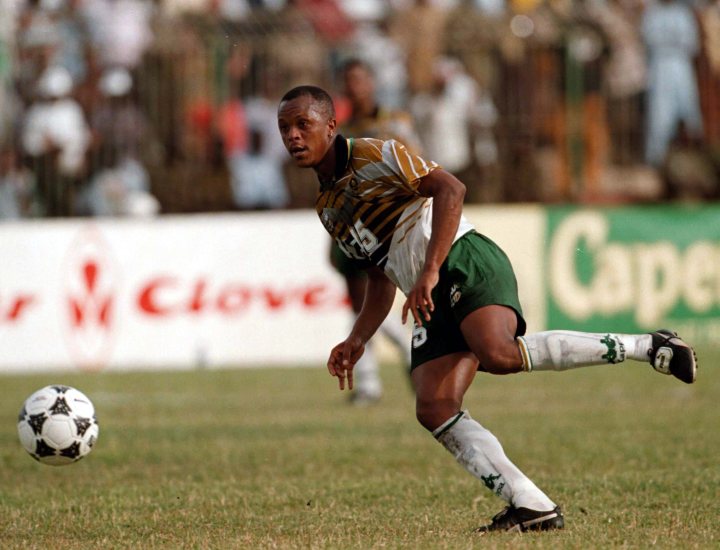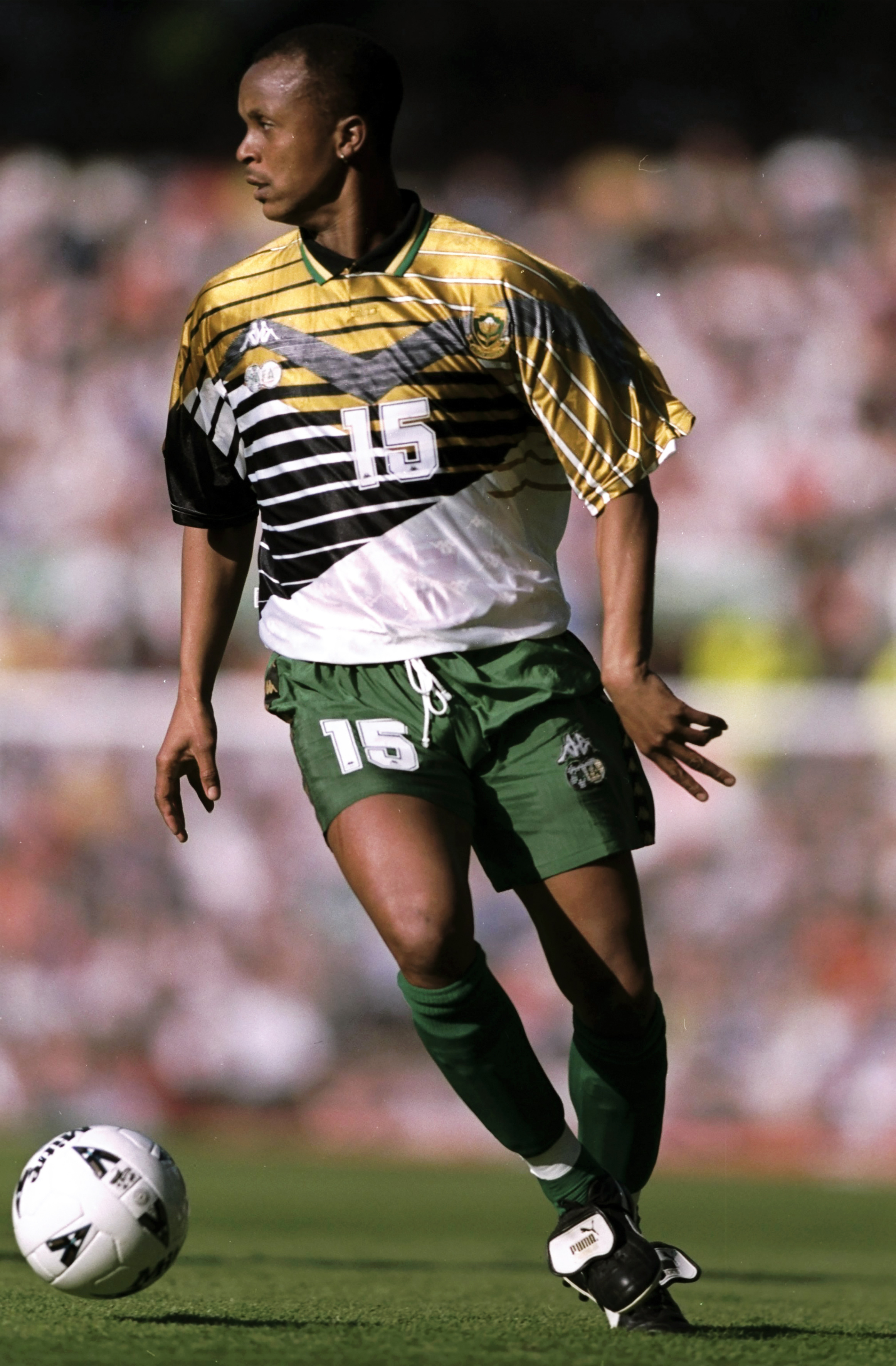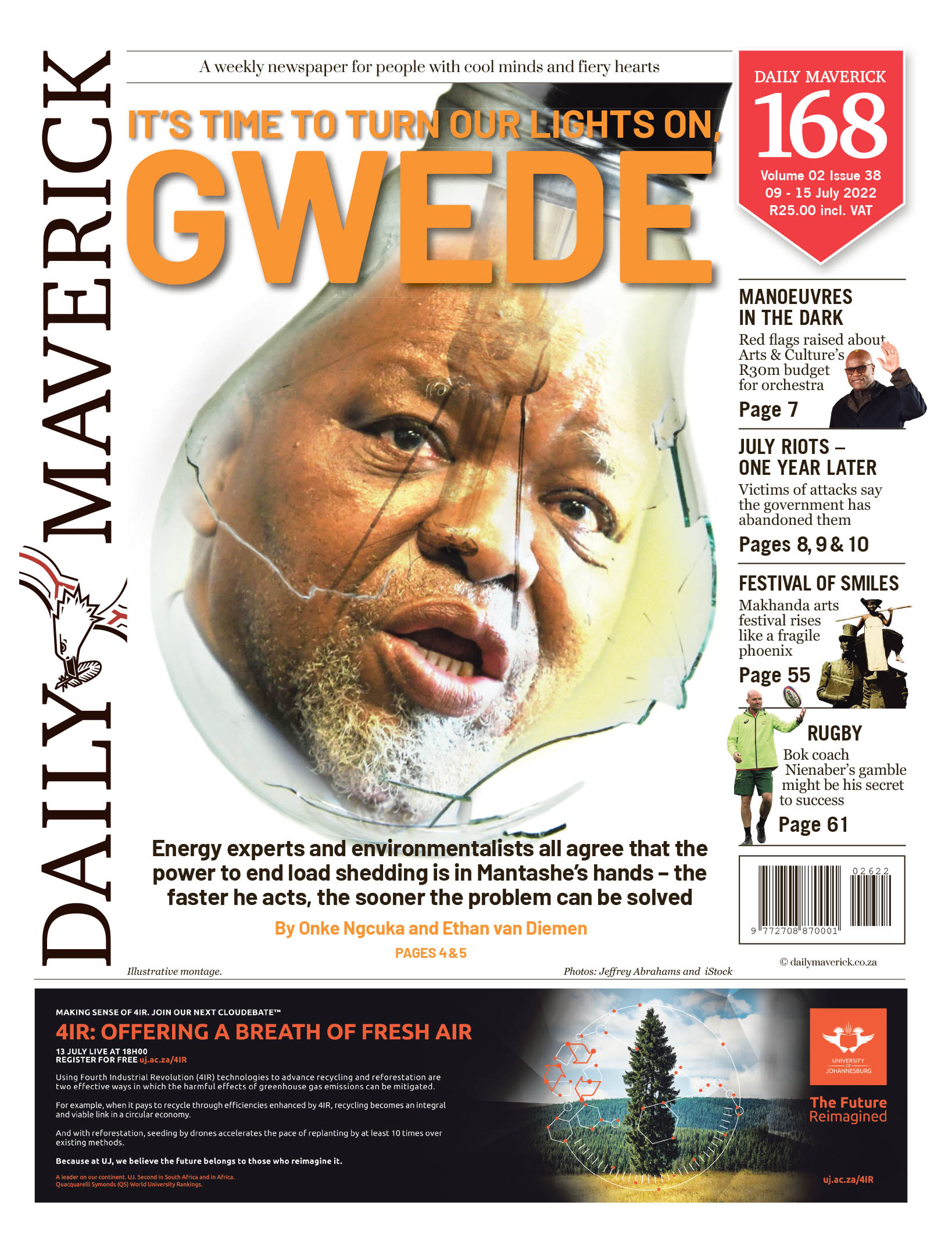FOOTBALL HISTORY
The match that marked SA’s return to international soccer

On 7 July 1992 South Africa’s first multiracial football team made history when it took a tentative step back on to the world stage with Doc Khumalo’s unforgettable goal against Cameroon.
The rain lashed down at King’s Park Rugby Stadium in Durban as a reluctant Doctor Khumalo stood ready to take what felt like the most important kick of his life.
There was a threadbare crowd at this historic occasion 30 years ago, but those who had braved the elements were sitting expectantly on the edge of their seats.
The term “Bafana Bafana” had not been coined yet, but this felt like boys against men as South Africa made its tentative first steps back into the international fold on 7 July 1992 against a Cameroon side that had starred at the 1990 World Cup in Italy two years earlier.
“I used to take penalties, all through my career, but this was a scary one,” Khumalo tells Daily Maverick. “Just because of the opposition we were playing and the occasion. I actually didn’t want to take it.”
The Kaizer Chiefs stalwart should not have worried. He nestled the ball into the net and became the first player to score for a multiracial South African side in an official international match.

Doctor Khumalo of South Africa in action during the 1997 International Friendly against England at Old Trafford in Manchester, England. England won 2-1. (Photo: Ben Radford / Allsport)
It had been something of a generous penalty award from referee Jelas Masole of Botswana, who perhaps had a sense of occasion as the game meandered towards a 0-0 draw with 10 minutes remaining.
“After the referee awarded the penalty, that ball just sat there in the penalty area; nobody stepped forward to take it. We all chickened out,” Khumalo recalls. “The captain [Neil Tovey] walked up to me and said, ‘Come on, I know you can do it’.
“He had the confidence to ask me over all the other players, so I couldn’t say no. As I placed the ball, I was so scared, but the fans were cheering — I think they had faith in me.
“A few days later someone asked me, ‘Man, what does it feel like to make history?’ It was only then that I thought about the significance of the goal,” Khumalo says.
His goal took South Africa to a 1-0 victory in the first of three matches against the Indomitable Lions that were to welcome South Africa back into the international fold. The series would end with a win apiece and a draw.
Playing against heroes
The fact that Issa Hayatou, then president of the Confederation of African Football, was Cameroonian may have played a part in the choice of South Africa’s first international opponents.
The Indomitable Lions were also the hottest property on the African continent at the time, with the likes of veteran forward Roger Milla, captain Stephen Tataw, powerful Francois Omam-Biyik and goalkeeper Thomas N’Kono.
“We were playing against our heroes, guys we had seen on television and who had done so well at the 1990 World Cup,” says Lucas Radebe, who would go on to captain Leeds United in the English Premier League and South Africa at two World Cups.
“We were in awe of them and, when I saw them on the field, I thought they looked like true international stars. When I look back now, I would say playing that game was right up there with any career highlight that came before or after.
“It is something that will never leave me, that excitement and awe we had going into the game. It is not often that you get 11 players making their international debuts.
“That inexperience would cost us later on, but we were living off adrenalin and the desperation to do well.”
The team was coached by Stanley “Screamer” Tshabalala, who had not been the original choice, but was thrust into the position after it came to light that Englishman Jeff Butler had embellished his CV.
Tshabalala, who was axed within three months after slapping a journalist, says South Africa’s victory sent out an important message.
“I felt like a million dollars in the change room after the game. We had beaten a very good team and, for me, there was a sense of pride,” he says. “In those days there were not very many black coaches in South African football. I felt like I had sent a message that said, ‘Look, black coaches have what it takes to perform at the highest level’.”
Seeking unity
Former Bafana captain Steve Komphela admits those early months of the national team were challenging off the pitch, too, but credits Tshabalala for playing an important role in bringing the group together.
“Screamer had an unbelievable sense of humour and a way of making the players feel at ease,” Khumalo says. “This was important because, in South Africa back then, a black player saw a ‘white player’, a coloured player saw a ‘black player’. Today, they are all just players and I think those barriers have been broken down to a large extent but, back then, there was the potential for a divide.
“The players from Joburg, the big clubs like Kaizer Chiefs, Orlando Pirates and Mamelodi Sundowns, were the main guys, the ‘big okes’. Then the coloured players from Cape Town all hung out together and the whites just fitted in wherever.”
Komphela says the special night in Durban 30 years ago will never leave him.
“As Shosholoza was being sung, I looked into the floodlights and I saw that it had started to rain. I like to think those were the tears of God, tears of joy, for us and what was being achieved in South Africa.
“It was very emotional and a defining moment for me. I felt a chill down my spine.”
Tovey says the game had another positive spin-off for the players — it helped them to believe that a career outside of South Africa’s borders was possible.
“It was an opening of a door to all the players who could now dream of playing in Europe,” he says.
“It wasn’t long after that Lucas and Phil Masinga went to Leeds United.”
Tovey, who would later captain the side to the 1996 Africa Cup of Nations title, admits it was a big step into the unknown.
“We didn’t know what to expect, we were a little overawed. It was a special privilege to be the captain of the first South African multiracial team in international football.
“That is one achievement no one else will ever match.” DM168
This story first appeared in our weekly Daily Maverick 168 newspaper, which is available countrywide for R25.





















 Become an Insider
Become an Insider
Comments - Please login in order to comment.